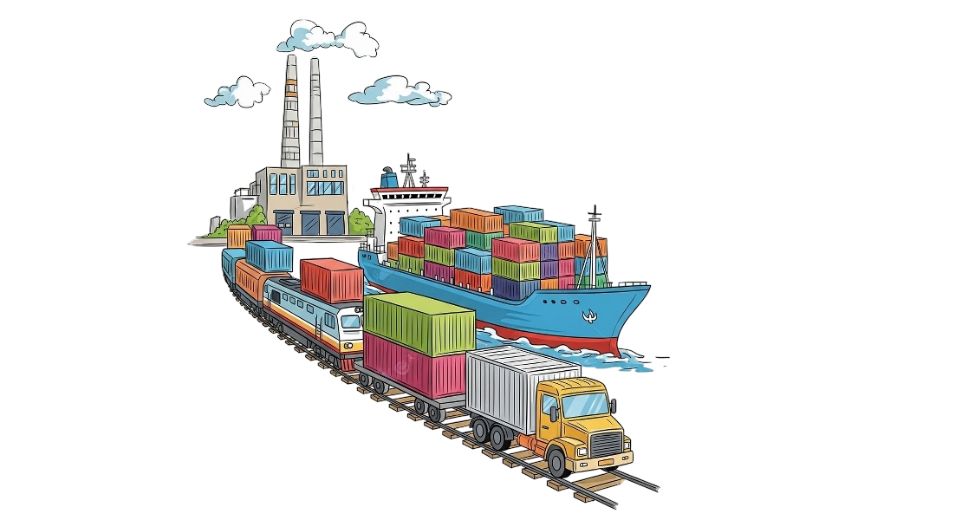
Jul 22, 2025

The most recent report available from Metastat Insight with the title Global Intermodal Shipment Market Report gives a comprehensive analysis of an industry that continues to shape the wider transport and logistics sector with increasing relevance. The report keenly takes note of the trends, changes, and innovations defining the future of intermodal shipment without falling prey to the conventions so commonly linked to industry reviews. The terrain being considered is defined by a balance of functional requirements and strategic aspirations, a delicate balance between efficiency and flexibility that serves to highlight the consistent viability of this form of transport. Intermodal shipping has ever been a utilitarian choice for logistics, available to those who demand an approach to shipping goods between regions that does not compromise on the advantages of each type of transport along the chain.
This process allows for the integration of rail, road, and sometimes maritime transport, synergizing their strengths so that goods cover more distance, move faster, and with fewer stops. Here, efficiency is not just operational but also logistical in character, solving problems of infrastructure constraints, geographical barriers, and supply chain continuity that single-mode transport cannot. What comes out of this complex network is not simply the transportation of cargo, but a larger story of cooperation between different industries of transport. Trucking firms, railroads, port facilities, and even warehousing centers are becoming more and more intertwined in a network where dependence leads to creativity. In this shared web, companies can redesign how goods move, are stored, and are delivered with a degree of versatility that would otherwise be impossible. Region-wise, the Global Intermodal Shipment Market is exhibiting trends indicative of wider commercial movements. Firms that previously considered logistics a sequential process are now thinking of it as a modular operation, one where contingency planning and flexibility are accorded equal importance to cost saving and rapidity.
This transition has promoted new alliances and induced investment in infrastructure that specifically caters to this mode of transportation, like terminals with the design capability to ensure smooth transfers between transport modes. The Metastat Insight report explores extensively how these changes are not limited to specific regions but are being realized on other continents as well, with a common realization of the advantage intermodal shipment has for local economies as well as international supply chains. What is most noteworthy is the way that this strategy is changing expectations across logistics networks. Timeliness, dependability, and respect for the environment are no longer viewed as distinct goals but rather as interdependent results that intermodal shipping is best equipped to provide.
In a review of the tactics of different market players, the report highlights a profile of companies growing more sophisticated in addressing logistics. Flexibility in routing, use of digital tracking tools, and a focus on reducing environmental footprint are common trends. These tactics reflect an maturation of the Global Intermodal Shipment Market, pointing to an enhanced understanding of strategic solutions over simplistic, one-size-fits-all solutions. Furthermore, this increasing sophistication has instigated a new tide of cooperation between public and private sectors. Policy-making, infrastructure construction, and technological advancements are now increasingly pursued with the collaboration of various stakeholders, each acknowledging that their success is dependent upon the reliability and efficiency of the overall network. This spirit of cooperation is not only augmenting present-day operations but also setting the stage for developments that will further erode boundaries between conventional methods of transportation.
No one can discount the contribution of technology in this evolution. Digitization of the logistics functions from booking and monitoring to forecasting and reporting has provided a platform where data informs decisions. The Global Intermodal Shipment Market is taking advantage of these features to map out routes, anticipate possible disruptions, and tailor customer services. This data-informed methodology is not only making things run smoothly but also offering insights that promote ongoing improvement throughout the network.
Environmental issues are also taking on an ever-more prominent place in intermodal shipping discussions. With corporations looking for ways to minimize their carbon impact, the efficiencies inherent in this method are a compelling solution. Rail freight, in particular, is a lower-emission option for longer hauls over land, and strategically combined with trucks for local runs, is a balanced option that satisfies goals of sustainability without sacrificing delivery performance. Customer needs continue to shift in step with these advances. Reliability, transparency, and accountability are no longer discretionary qualities but essential requirements. The Global Intermodal Shipment Market is meeting them with innovations that increase visibility and control, offering shippers and receivers immediate feedback and predictive information.
This sensitivity to customer needs reflects a dedication to excellence that extends beyond transportation itself. In their synthesis of these conclusions, the Global Intermodal Shipment Market Report provided by Metastat Insight provides a glimpse into an industry that is not only dynamic but also future-facing. It freezes the moment at which logistics is shifting from being a matter of course to being a commerce, innovation, and sustainability enabler. As economies around the world continue to adjust to the challenges and prospects of a networked global economy, the utility of intermodal shipment will certainly be a foundation in defining the future of transportation solutions.
Drop us an email at:
Call us on:
+1 214 613 5758
+91 73850 57479